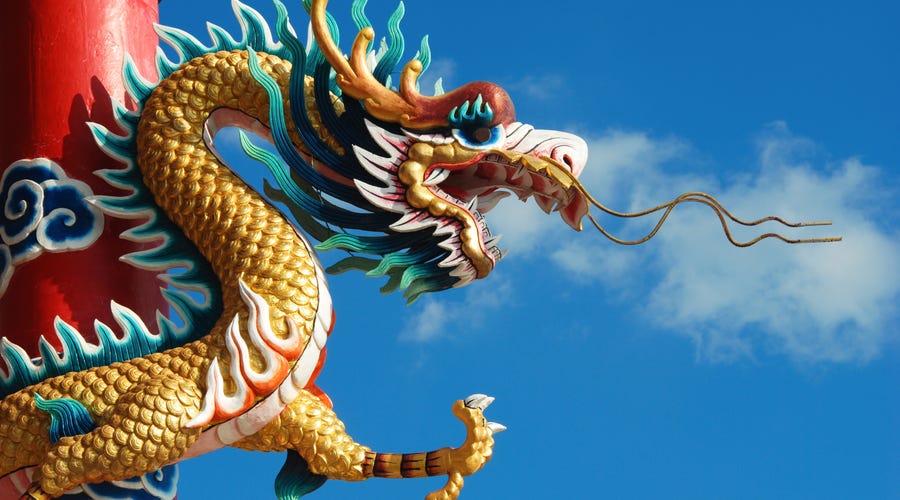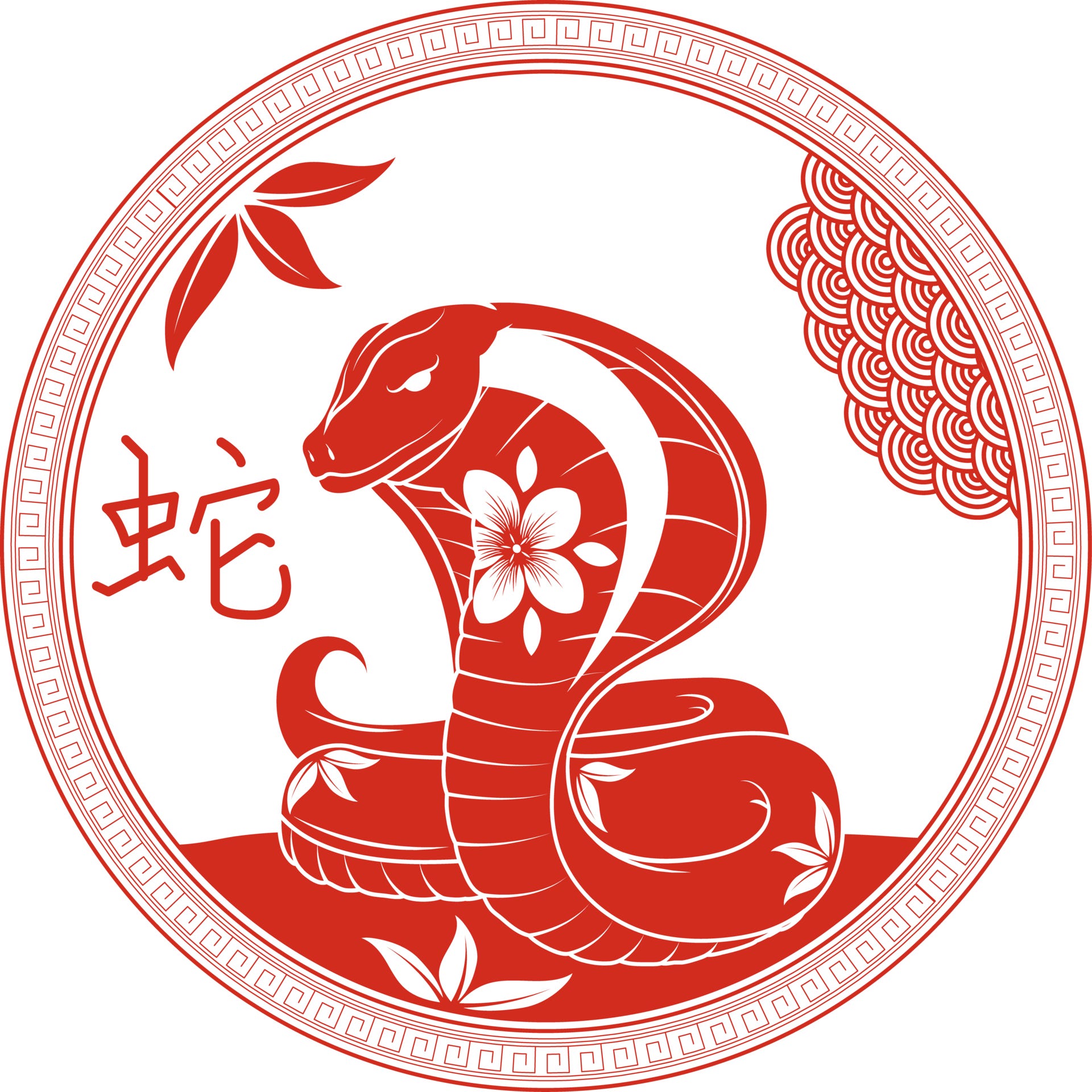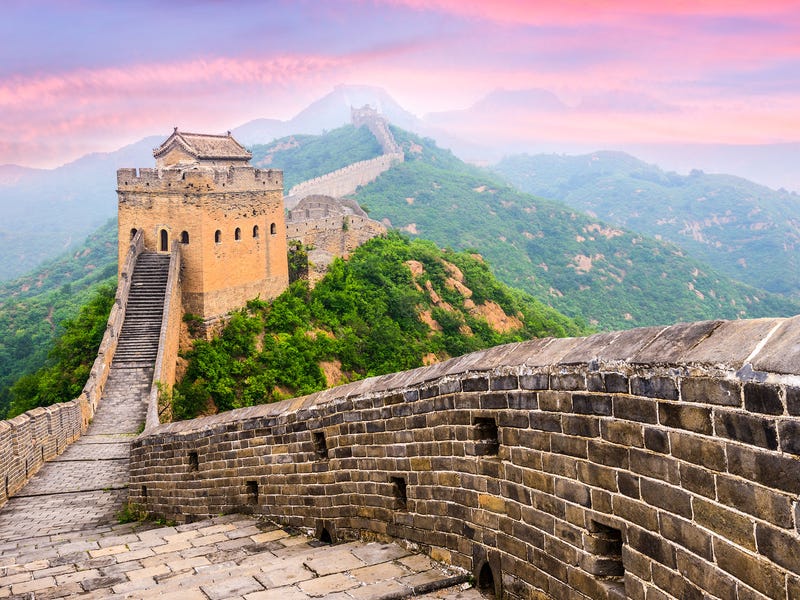
A splendid guide to happy Chinese New Year greetings for 2025
Marco Monroy

Editor
Want to celebrate Chinese New Year the right way? This ultimate guide will cover essential Chinese New Year vocabulary + cultural tidbits.
You’ve probably heard of Chinese New Year and maybe wonder why it’s different from the New Year we celebrate on January 1st. Although not celebrated everywhere in the world, this tradition is the most important holiday of the year for hundreds of millions of people. If you’re studying Mandarin Chinese, then you must learn about Chinese New Year.
This Chinese tradition dates back to around 3,500 years ago, sometime during the Shang Dynasty. Since then, Chinese New Year has become the single most important celebration in the Chinese-speaking world. If you find yourself in China during January or February or are otherwise keen to celebrate Chinese New Year, then you need to take a look at this guide to everything about Chinese New Year.
Below, we’ll cover essential vocabulary, common New Year’s greetings as well as greetings that go far beyond how to say Happy New Year in Chinese, plus plenty of cultural tidbits. By the end of this article, you’ll be able to wish your friends and family a prosperous new year.
Table of contents
- An introduction to Chinese New Year vocab
- Chinese greetings for Chinese New Year
- Movies for Chinese New Year
- Songs for Chinese New Year
- Chinese New Year gifting guide
- FAQs about Chinese New Year
- Conclusion
An introduction to Chinese New Year vocab
Before we get into all the festivities, let’s take a look at some Chinese New Year vocabulary. If you’re learning Mandarin, then this section will arm you with plenty of helpful vocabulary that you’ll surely use year after year. We’ll break down all the vocabulary into different sections including dates, traditional activities, and more.

How to say Happy New Year in Chinese and other essential vocabulary for Chinese New Year
We’ll cover a wide range of vocabulary words, from how to say happy new year in Chinese, traditional New Year's activities to the most common New Year's foods. However, we’ll start with the basics. If you’ve got a Chinese New Year celebration coming up, then these are the words that you’ll absolutely need to kick off the new year to a great start.
| English | Chinese | Pinyin | Pronunciation |
| Spring Festival | 春节 | chūn jié | chuen jye |
| Red envelope | 红包 | hóng bāo | horng bau |
| Happy New Year | 新年快乐 | xīn nián kuài lè | shin nian kuay leh |
| May you have a prosperous New Year! | 恭喜发财 | gōng xǐ fā cái | gong shii fa tsair |
| To return to your hometown | 回老家 | huí lǎo jiā | hwei lao jia |
| To make dumplings | 包饺子 | bāo jiǎo zi | bau jeau tzy |
| Lion dance | 舞狮 | wǔ shī | wuu shy |
| Dragon dance | 舞龙 | wǔ lóng | wuu long |
| To wish others a happy New Year | 拜年 | bài nián | bay nian |
| Chinese zodiac | 生肖 | shēng xiào | sheng shiaw |
Special dates and events
Celebrating New Year's in the West is a one-and-done deal, but that’s not the case with Chinese New Year. The extended celebration period lasts around two weeks, and there are a few important milestone dates and events before and along the way. Here are some of the common dates and events to keep in mind:
| English | Chinese | Pinyin | Pronunciation |
| Lunar New Year | 农历新年 | nóng lì xīn nián | nong lih shin nian |
| Chinese New Year’s Eve | 除夕 | chú xī | chwu shi |
| New Year’s Day | 大年初一 | dà nián chū yī | dah nian chu i |
| Day After New Year’s Day | 初二 | chū èr | chu ell |
| Lantern Festival | 元宵节/正月十五 | yuán xiāo jié/zhēng yuè shí wǔ | yuan shiau jye/jeng yueh shyr wuu |
| First month of the year | 正月 | zhēng yuè | jeng yueh |
| Spring Festival Migration | 春运 | chūn yùn | chuen yunn |
| Family reunion dinner | 团圆饭 | tuán yuán fàn | twan yuan fann |
| Chinese New Year Gala | 春节晚会 | chūn jié wǎn huì | chuen jye woan huey |
| Temple fairs | 庙会 | miào huì | miaw huey |
| New Year's Eve dinner | 年夜饭 | nián yè fàn | nian yeh fann |
| Celebrate the New Year | 过年 | guò nián | guoh nian |
Traditional activities and objects
Just as Western New Year celebrations come with their own traditions, Chinese New Year also has special celebratory activities and objects. Notably, making dumplings as a family is one of the most popular New Year's Eve traditions, as doing so is said to attract wealth in the coming year. Here are some of the top Chinese New Year activities and objects:

| English | Chinese | Pinyin | Pronunciation |
| Money given to children/the younger members of the family as a New Year gift | 压岁钱 | yā suì qián | ia suey chyan |
| Gift | 礼物 | lǐ wù | lii wuh |
| Fireworks | 烟花 | yān huā | ian hua |
| Firecrackers | 鞭炮 | biān pào | bian paw |
| To set off firecrackers | 放鞭炮 | fàng biān pào | fanq bian paw |
| Lantern | 灯笼 | dēng long | deng long |
| Skit | 小品 | xiǎo pǐn | sheau piin |
| Crosstalk | 相声 | xiàng sheng | shianq sheng |
| Acrobatics | 杂技 | zá jì | tzar jih |
| To stay up until midnight | 守夜 | shǒu yè | shoou yeh |
| Spring Festival couplets, typically put outside doors. | 春联 | chūn lián | chuen lian |
| Traditional paper cuttings | 窗花 | chuāng huā | chuang hua |
Traditional Chinese New Year foods
Just as turkey is a traditional Thanksgiving dinner staple, Chinese New Year celebrations also have unmissable foods. Perhaps the most common tradition is to make dumplings as a family on New Year’s Eve. Why? Because dumplings look like an ancient version of Chinese money, known as silver Chinese ingots. Although no longer in circulation, these ingots looked a lot like dumplings, which is why it’s believed that making dumplings as a family will bring financial success in the new year.

| English | Chinese | Pinyin | Pronunciation |
| Dumplings | 饺子 | jiǎo zi | jeau tzy |
| Glutinous rice dumplings | 汤圆/元宵 | tāng yuán/yuán xiāo | tang yuan/yuan shiau |
| Fish | 鱼 | yú | yu |
| New Year cake | 年糕 | nián gāo | nian gau |
| Longevity noodles | 长寿面 | cháng shòu miàn | charng show miann |
| Spring rolls | 春卷 | chūn juǎn | chuen jeuan |
| Fruits | 水果 | shuǐ guǒ | shoei guoo |
| Eight treasures rice | 八宝饭 | bā bǎo fàn | ba bao fann |
| Glutinous rice cake | 糍粑 | cí bā | tsyr ba |
| Cured meats | 腊味 | là wèi | lah wey |
Chinese zodiac
The Chinese zodiac is just as extensive and interesting as the Western zodiac. If you’re a devout reader of your horoscope, then you’ll be delighted to learn that your Western zodiac sign won’t interfere with your Chinese zodiac. That’s because Chinese zodiac signs are based on the year you were born, not the month. For more information on this endlessly fascinating topic, check out our full guide to the Chinese zodiac.

| Years | English | Chinese | Pinyin | Pronunciation |
| 1936, 1948, 1960, 1972, 1984, 1996, 2008, 2020 | Rat | 鼠 | shǔ | shuu |
| 1937, 1949, 1961, 1973, 1985, 1997, 2009, 2021 | Ox | 牛 | niú | niou |
| 1938, 1950, 1962, 1974, 1986, 1998, 2010, 2022 | Tiger | 虎 | hǔ | huu |
| 1939, 1951, 1963, 1975, 1987, 1999, 2011, 2023 | Rabbit | 兔 | tù | tuh |
| 1940, 1952, 1964, 1976, 1988, 2000, 2012, 2024 | Dragon | 龙 | lóng | long |
| 1941, 1953, 1965, 1977, 1989, 2001, 2013, 2025 | Snake | 蛇 | shé | sher |
| 1942, 1954, 1966, 1978, 1990, 2002, 2014 | Horse | 马 | mǎ | maa |
| 1943, 1955, 1967, 1979, 1991, 2003, 2015 | Sheep | 羊 | yáng | yang |
| 1944, 1956, 1968, 1980, 1992, 2004, 2016 | Monkey | 猴 | hóu | hour |
| 1945, 1957, 1969, 1981, 1993, 2005, 2017 | Rooster | 鸡 | jī | ji |
| 1946, 1958, 1970, 1982, 1994, 2006, 2018 | Dog | 狗 | gǒu | goou |
| 1947, 1959, 1971, 1983, 1995, 2007, 2019 | Pig | 猪 | zhū | ju |
Chinese greetings for Chinese New Year
If you want to make a great impression on your Chinese friends and relatives, then this is the section for you. Using one of the following common CNY greetings is sure to impress your friends. You can also craft your own greeting by using 祝你 (zhù nǐ) — or 祝您 (zhù nín) when addressing older people or those you want to show respect to — followed by your wishes for the new year.
| English | Chinese | Pinyin | Pronunciation |
| Wishing you… | 祝你 | zhù nǐ | juh nii |
| Wishing you… (formal) | 祝您 | zhù nín | juh nin |
| Favorable wind throughout the journey | 一帆风顺 | yì fān fēng shùn | yih fan feng shuenn |
| To be promoted and gain wealth | 升官发财 | shēng guān fā cái | sheng guan fa tsair |
| Great luck and prosperity | 大吉大利 | dà jí dà lì | dah jyi dah lih |
| To be successful in one's studies | 学业有成 | xué yè yǒu chéng | shyue yeh yeou cherng |
| To rapidly go up in the world | 平步青云 | píng bù qīng yún | pyng buh ching yun |
| To have abundance year after year | 年年有余 | nián nián yǒu yú | nian nian yeou yu |
| To have one's wishes come true | 心想事成 | xīn xiǎng shì chéng | shin sheang shyh cherng |
| To climb step by step/to rise steadily | 步步高升 | bù bù gāo shēng | buh buh gau sheng |
| Thriving and prosperous business or trade | 生意兴隆 | shēng yì xīng lóng | sheng yih shing long |
| To be successful in business | 事业有成 | shì yè yǒu chéng | shyh yeh yeou cherng |
| To win top marks in examinations | 金榜题名 | jīn bǎng tí míng | jin baang tyi ming |
| To win instant success | 马到成功 | mǎ dào chéng gōng | maa daw cherng gong |
| To wish work goes smoothly | 工作顺利 | gōng zuò shùn lì | gong tzuoh shuenn lih |
| To earn a lot of money | 财源广进 | cái yuán guǎng jìn | tsair yuan goang jinn |
| A healthy body | 身体健康 | shēn tǐ jiàn kāng | shen tii jiann kang |
| Good luck and happiness | 吉祥如意 | jí xiáng rú yì | jyi shyang ru yih |
| To progress with your studies | 学习进步 | xué xí jìn bù | shyue shyi jinn buh |
| To wish happiness to the entire family | 合家欢乐 | hé jiā huān lè | her jia huan leh |
| To wish happiness to the entire family | 合家幸福 | hé jiā xìng fú | her jia shinq fwu |
| Gold and jade fill the halls | 金玉满堂 | jīn yù mǎn táng | jin yuh maan tarng |
| Red luck is upon you | 红运当头 | hóng yùn dāng tóu | horng yunn dang tour |
| Purple air comes from the east; a traditional wish of good fortune. | 紫气东来 | zǐ qì dōng lái | tzyy chih dong lai |
Greetings for the year of the snake 2025
In 2025, the festivities begin on January 29th, marking the start of the Year of the Wood Snake. The snake, the sixth animal in the Chinese zodiac, symbolizes wisdom, transformation, and intuition. The wood element further emphasizes growth and renewal, suggesting a year ripe for personal development and new opportunities.
As families prepare for the New Year, it's customary to clean and decorate homes to usher in good fortune. Incorporating the color red, which symbolizes luck and protection, is a common practice. Feng Shui experts recommend decluttering spaces and rearranging furniture to promote positive energy flow, aligning with the transformative spirit of the Wood Snake.

Movies for Chinese New Year
Watching a Chinese New Year movie is a favorite holiday activity of many. If you want to spend some quality time with your Chinese friends and family during this time of year or if you want to practice your Chinese skills with a cheerful holiday movie, then you should take a look at the following Chinese New Year classics:

Lost on Journey
Chinese: 人在囧途
Pinyin: rén zài jiǒng tú
Description: This comedy film follows a businessman and a migrant worker as they encounter numerous misadventures while traveling home for the Chinese New Year. Their journey highlights the contrast between their social statuses and personal experiences, offering both humor and social commentary.
Great for: Intermediate and advanced learners.
The Dream Factory
Chinese: 甲方乙方
Pinyin: jiǎ fāng yǐ fāng
Description: This comedy film revolves around four friends who start a business fulfilling people's fantasies for a fee. The film explores various human desires and dreams while also offering touching insights into contemporary Chinese society and its ever-changing values.
Great for: Intermediate and advanced learners.
Detective Chinatown
Chinese: 唐人街探案
Pinyin: táng rén jiē tàn àn
Description: This action-comedy movie follows a brilliant detective and his eager nephew as they solve a complex murder mystery in Bangkok's Chinatown. The film blends humor, suspense, and action, showcasing a diverse cast of characters and a vivid portrayal of Bangkok’s bustling Chinatown.
Great for: Intermediate and advanced learners.
All’s Well, Ends Well
Chinese: 家有喜事
Pinyin: jiā yǒu xǐ shì
Description: This is a classic Hong Kong comedy film that focuses on the romantic misadventures of three brothers. It explores themes of love and family and is known for its humor and star-studded cast. It intertwines various storylines to a climactic and humorous resolution, emphasizing the importance of happiness and family unity.
Great for: Intermediate and advanced learners.
New Year’s Coin
Chinese: 压岁钱
Pinyin: yā suì qián
Description: For cinema aficionados, this is a classic black-and-white Chinese film from 1937. The story revolves around a piece of New Year lucky money, initially gifted to a girl, which subsequently passes through various hands. The film provides a glimpse into different social classes and their lifestyles, reflecting the diverse societal fabric of the time.
Great for: Intermediate and advanced learners.
Eat Drink Man Woman
Chinese: 饮食男女
Pinyin: yǐn shí nán nǚ
Description: This Taiwanese film is a heartwarming drama about a master chef and his three unmarried daughters in Taipei. The film explores the complexities of modern relationships and traditional values, using elaborate meals as a metaphor for their changing lives and emotional journeys.
Great for: All levels.
Reunion Dinner
Chinese: 团圆饭
Pinyin: tuán yuán fàn
Description: This movie focuses on the importance of having a family dinner for Chinese New Year. It follows the story of a soon-to-be-married couple, but the boyfriend hires a fake family because of his lack of a relationship with his mother. The film beautifully intertwines humor, family values, and emotional depth.
Great for: Beginner and intermediate learners.
Songs for Chinese New Year
Listening to music is a great way to celebrate Chinese New Year and enjoy time with your loved ones. And it also happens to be a fantastic way to study Chinese! Here are three great songs that you can play during your CNY celebrations or during a festive study sesh.
恭喜发财 (gōng xǐ fā cái) – Andy Lau (刘德华)
Andy Lau is a massively popular singer from Hong Kong. He released this Chinese New Year classic in 2005, which has since become one of the most popular songs to listen to on Chinese New Year. This is an excellent song for beginners and intermediate speakers alike to listen to.
恭喜恭喜 (gōng xǐ gōng xǐ) – Nick Chung & Stella Chung (钟盛忠 and 钟晓玉)
This vibrant and festive song embodies the joyous spirit of Chinese New Year. With its upbeat melody and cheerful lyrics, the song is a popular choice during Chinese New Year celebrations.
新年好 (xīn nián hǎo) – Teresa Teng (邓丽君)
This classic Chinese New Year song is known for its sweet melody and joyful lyrics. Sung by the legendary Teresa Teng, 新年好 (xīn nián hǎo) combines traditional sentiments with her iconic vocal style, making it a timeless favorite for Chinese New Year.
Chinese New Year gifting guide
Giving gifts isn’t particularly characteristic of Western New Year’s, but it is an important part of Chinese New Year celebrations. Not only is it common to exchange gifts with your loved ones, but you should also pay close attention to gift-giving etiquette. Here are some guidelines on what to gift (and what not to gift!) during Chinese New Year’s:
- Anything too cheap or too expensive: Even if you want to dazzle your loved one with an expensive gift, you want to make sure that you’re not outshining them too much. Giving a disproportionately pricey gift can be embarrassing for the other person, so avoid buying something too expensive or too cheap.
- Choose the right color: Color symbolism is extremely important in Chinese culture, which is why you should avoid giving anything black or white. Try giving something red or gold to signify good fortune and wealth. You should also keep the symbolism of Chinese colors in mind for the packaging!
- Avoid certain gifts: You should avoid giving watches, shoes, umbrellas, scissors, or green hats. All of these gifts have negative connotations, so giving them as a New Year’s gift could be offensive!
- Be mindful of numbers: Chinese numbers carry meaning, and gifting an unlucky number could be a faux pas. Avoid giving sets of four, as the number four 四 (sì) sounds a lot like the word for death, 死 (sǐ).
One last note, you should try to avoid opening a present in public or in front of the person who gave it to you. You know the saying, “it’s the thought that counts,” so opening the present in public takes away from the thought and focuses on the object.

FAQs about Chinese New Year
Why is Chinese New Year celebrated at different times of the year?
Chinese New Year is celebrated according to the end of the lunar calendar (also known as a lunisolar calendar), which does not correspond to the Gregorian calendar. This holiday always falls on the second moon after the winter solstice, which happens sometime between January 21 and February 20.
What countries/regions celebrate Chinese/Lunar New Year?
Besides Mainland China and Hong Kong, Macau, and Taiwan, Chinese/Lunar New Year is celebrated extensively in:
- Singapore
- Brunei
- Cambodia
- Indonesia
- Malaysia
- Myanmar
- The Philippines
- Thailand
- Vietnam
Additionally, countries with a significant Chinese diaspora population like Canada, the United States, Australia, Mauritius, New Zealand, Peru, South Africa, and the United Kingdom also have extensive celebrations for Chinese/Lunar New Year.
Both Chinese New Year and Lunar New Year are celebrated on the same day each year. Chinese New Year is a festivity that has a history of about 3,500 years. As such, it comes with its own set of customs and traditions. Likewise, cultures that celebrate Lunar New Year may do so according to their own traditions.
How long do Chinese New Year celebrations last?
Chinese New Year celebrations start on the second new moon of the lunar calendar and end on the following full moon, lasting 15 or 16 days. They start with Chinese New Year’s Eve and end with the Lantern Festival.
What should I wear for Chinese New Year?
Picking your outfit for Chinese New Year’s celebrations is extremely important, as the clothes you wear symbolize a fresh start. Red, the most popular color, symbolizes good luck, while gold represents wealth. Women can choose a traditional Qipao (旗袍), and men might opt for a Tang suit (唐装), normally made of silk featuring bright colors and intricate designs. You can also accessorize with gold jewelry for an added touch of prosperity. Avoid white and black, as they are traditionally associated with mourning. Wearing traditional Chinese New Year outfits isn’t required, though, so you can also wear modern attire in these colors.
Celebrate Chinese New Year with your favorite people
At the end of the day, the most important part of Chinese New Year celebrations is spending time with your family and close friends. If you can, try to partake in some of the Chinese New Year traditional activities to enjoy an authentic Chinese New Year’s celebration.
If you enjoyed this article and would like to learn more about the Chinese language and Chinese culture, then check out our Mandarin Chinese blog. We regularly publish new content about learning Chinese, such as asking for directions in Chinese and writing a formal letter in Chinese.


